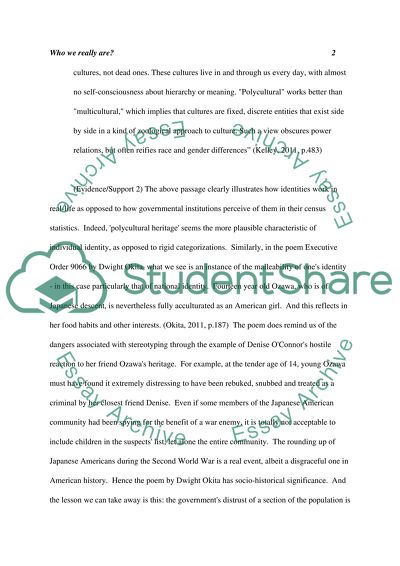Cite this document
(“Who we really are Essay Example | Topics and Well Written Essays - 1250 words”, n.d.)
Retrieved from https://studentshare.org/environmental-studies/1409925-who-we-really-are
Retrieved from https://studentshare.org/environmental-studies/1409925-who-we-really-are
(Who We Really Are Essay Example | Topics and Well Written Essays - 1250 Words)
https://studentshare.org/environmental-studies/1409925-who-we-really-are.
https://studentshare.org/environmental-studies/1409925-who-we-really-are.
“Who We Really Are Essay Example | Topics and Well Written Essays - 1250 Words”, n.d. https://studentshare.org/environmental-studies/1409925-who-we-really-are.


